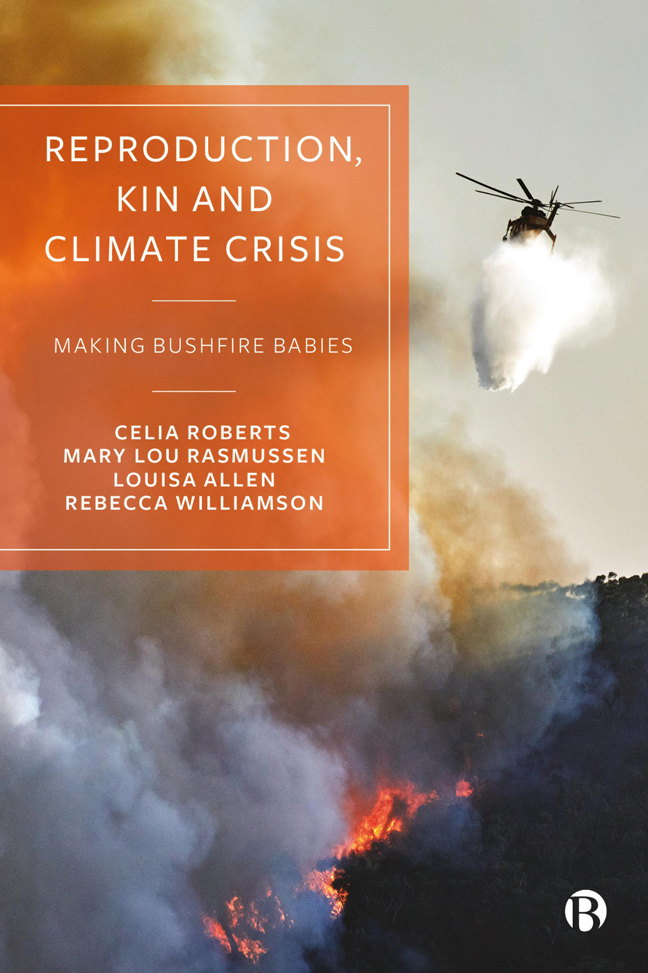Book contents
- Frontmatter
- Contents
- List of Figures and Table
- Notes on the Figures
- Notes on the Authors
- Acknowledgements
- Interleave 1
- 1 Reproducing in Climate Crisis
- Interleave 2
- 2 Methods in Crisis
- Interleave 3
- 3 Breath, Breathing and ‘Mum-Guilt’
- Interleave 4
- 4 Smoke, Machines and Public Health
- Interleave 5
- 5 Kin, Care and Crises
- Interleave 6
- 6 Pyro-reproductive Futures
- Interleave 7
- 7 Making Bushfire Babies
- Notes
- References
- Index
2 - Methods in Crisis
Published online by Cambridge University Press: 24 January 2024
- Frontmatter
- Contents
- List of Figures and Table
- Notes on the Figures
- Notes on the Authors
- Acknowledgements
- Interleave 1
- 1 Reproducing in Climate Crisis
- Interleave 2
- 2 Methods in Crisis
- Interleave 3
- 3 Breath, Breathing and ‘Mum-Guilt’
- Interleave 4
- 4 Smoke, Machines and Public Health
- Interleave 5
- 5 Kin, Care and Crises
- Interleave 6
- 6 Pyro-reproductive Futures
- Interleave 7
- 7 Making Bushfire Babies
- Notes
- References
- Index
Summary
How can we study climate, COVID-19, kin and care in particular times and places of crisis? The research for this book was forged in the intense smoke of the 2019–2020 Canberra summer and funded by our university just before the COVID-19 lockdown saw universities batten down their material and financial hatches. With just A$30,000 in our account and living in lockdown conditions, we set out to explore how we might talk to people about reproduction and climate change. Mary Lou and Louisa had already been writing about young people refusing to have babies as a form of ecological protest. Celia and Mary Lou were members of a feminist reading group about reproduction in which we had been reading, inter alia, Michelle Murphy's The Economization of Life (2017), Sophie Lewis’ Full Surrogacy Now (2019), Katherine Dow's Making a Good Life (2016) and Catherine Mills’ Biopolitics (2017). Rebecca was working several casual academic jobs, having recently returned to work after having her first child. Reproduction was on our collective minds, but we were full of uncertainty about how best to research it in the contemporary moment. Suddenly, ‘climate crisis’ seemed so much more real: not something that will affect coming generations, but a series of catastrophes that forced us choking and frightened into our homes. What analytic resources did feminist and queer theory, new materialism and sociology have to offer in this moment?
After many conversations among ourselves and with colleagues in a range of disciplines, we decided to seek ethical approval to start talking to pregnant women (and their partners if they wished) and to people who had recently had a baby. Our plan was to ask participants to take us for a walk in their local areas while talking us through what happened during the fires. Rebecca is an urban sociologist, and we were inspired by her interest in place and space. We were also very keen to know how people had managed their daily lives and how they might articulate the networks of care and connection in which they were situated. Immersed in queer theory and feminist technoscience studies, we felt strongly that no assumptions should be made about who was caring for who or what during the fires and the pandemic.
- Type
- Chapter
- Information
- Reproduction, Kin and Climate CrisisMaking Bushfire Babies, pp. 29 - 46Publisher: Bristol University PressPrint publication year: 2023



